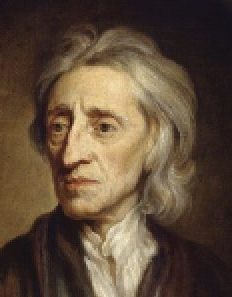
John Locke was born on August 29, 1632, in Wrington, Somerset, England. He came from a relatively well-off family of Puritan background. His father, served as captain of the cavalry in the Parliamentarian forces that challenged the monarchy of King Charles I who appeared to be preparing to dispense with Parliament. It was during these early stages of this English Civil War that young John attended school. In 1647, he enrolled at the prestigious Westminster School in London, just half a mile from where King Charles I would be executed two years later. On graduation in 1652, at age 20, John was admitted to Christ Church, Oxford, where he focused on medicine and natural philosophy ( now called “science”). He graduated with a B.Sc. in 1656 and an M.Sc. in 1658.
Locke’s philosophical ideas are primarily outlined in his major works, including “An Essay Concerning Human Understanding” (1689), “Two Treatises of Government” (1690), and “A Letter Concerning Toleration” (1689).
An Essay Concerning Human Understanding is a foundational text in modern philosophy and explores the nature of human knowledge, perception, and understanding. The following excerpt is taken from Intelligence, IQ & Perception:
In 1690, just 3 years after the publication of the Principia, English philosopher John Locke published his treatise, An Essay Concerning Human Understanding, in which he asserted:
Let us suppose the mind to be, as we say, white paper, void of all characters, without any ideas: how comes it to be furnished? Whence comes it by that vast store which the busy and boundless fancy of man has painted on it with an almost endless variety? Whence has it all the materials of reason and knowledge? To this I answer, in one word, from experience.
Locke’s use of the term “white paper” to describe the initial state of the human mind has subsequently been referred to as a “blank slate” or in Latin as a tabula rasa. The concept of the tabula rasa had far-reaching political ramifications. If, indeed, we all enter the world as blank slates, differing only in experiences, then we’re all intellectual equals at birth and social classes are not justifiable on the basis of differences in ability.
The execution of King Charles I of England in 1649 signaled that the unfettered power of monarchies in Europe was in decline. The “divine right of kings”–the belief that monarchs derive their authority directly from God–was under siege and a growing movement against inherited privilege was gathering momentum. This emerging egalitarian movement would eventually manifest a century later in the American and French Revolutions, the latter under the battle cry, “liberté, égalité, fraternité.”
In Two Treatises of Government, Locke laid out his theories on political philosophy. He defended the idea of natural rights, including the rights to life, liberty, and property. He also proposed the concept of a social contract, asserting that legitimate political authority arises from the consent of the governed.Locke’s ideas on government and the separation of powers had a profound influence on the later development of democratic systems and constitutional governments.
A Letter Concerning Toleration advocated for religious tolerance and freedom of conscience. Locke argued that the state should not interfere in matters of religious belief and worship. He believed that religious diversity could coexist peacefully within a society, as long as people respected the basic principles of civil society.
Locke’s ideas gained significant traction and played a pivotal role in shaping the Enlightenment period and the development of liberal thought. In addition to his influence on the French Revolution, he had an earlier impact on the American Founding Fathers, particularly his ideas on individual rights and limited government, evident in documents such as America’s Declaration of Independence.
John Locke died on October 28, 1704, in Oates, Essex, England at the age of 72, never having married nor spawned children. His legacy continues to be studied, debated, and celebrated for his contributions to the understanding of human nature, political philosophy, and the importance of reason and tolerance.
